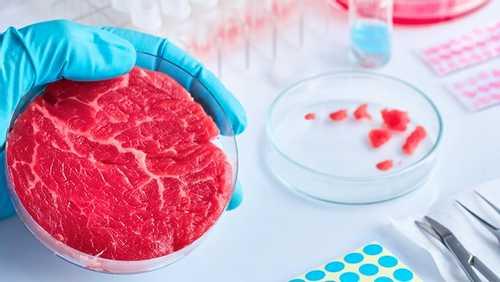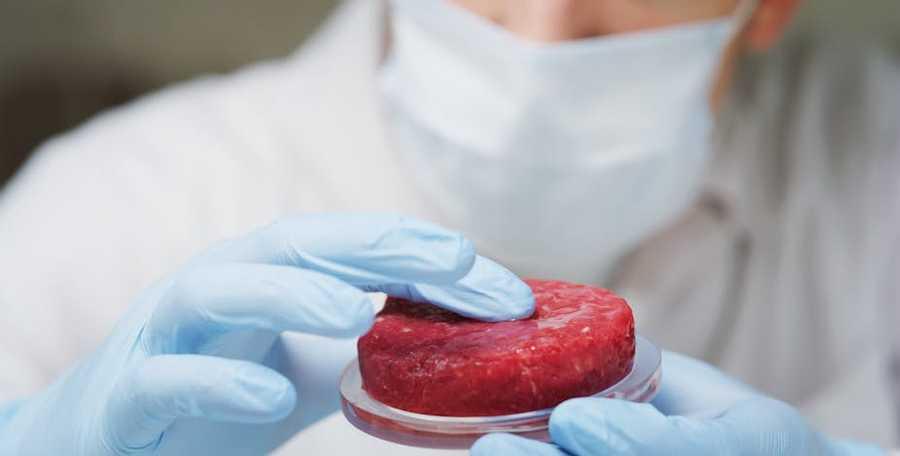What is lab grown meat? A scientist explains the taste, production and safety of artificial foods
Curated from: sciencefocus.com
3
Explore the World's Best Ideas
Join today and uncover 100+ curated journeys from 50+ topics. Unlock access to our mobile app with extensive features.
Artificial meat
Artificial meat is grown from animal cells in a laboratory and includes beef, pork, chicken and fish. It is also known as cultured meat or cell-based meat.
There are various ways to grow artificial meat. One way is to take adult stem cells from a small muscle sample from a live animal (under local anaesthetic.) The stem cells are then put in salts, vitamins, sugars, proteins, and growth factors. The oxygen-rich environment allows cells to multiply. The meat is ready in a few weeks.
11
155 reads
The taste of artificial meat
- The first artificial beef burger was unveiled in 2013. It was reportedly dry and dense because it only consisted of muscle fibres.
- A suitable meat replacement needs smell, texture and taste. Flavour molecules contribute to real meat's flavour. While synthetic flavours can be added to artificial meat, it isn't easy to create a good balance.
- Since 2013, a Dutch company claims to reprogram cells collected from bovine umbilical cord blood, turning them to master cells that can grow fat or muscle cells.
5
83 reads
The safety of artificial meat
With real meat, there's always a risk of contamination with bacteria after slaughter. Artificial meat is produced in a highly controlled environment and said to be safer than the real thing.
There are concerns over the growth factors added to stem cells, such as hormones, as overexposure in artificial meat can cause harmful health effects in humans. Growth hormones have been banned in agriculture in the EU since 1982.
5
84 reads
Artificial meat and nutrition
Artificial meat is full of protein. The nutritional content can be controlled by experimenting with the levels of saturated fatty acids and healthier polyunsaturated fatty acids. Saturated fats can be replaced with omega-3s, and extra micronutrients such as vitamin B12 can be added.
But eating too much meat is harmful to your health, and while artificial meat may be slightly better, plant-based meat alternatives may still be the healthiest option.
5
72 reads
Artificial meat can be more damaging to the planet
A US consultancy firm Kearney suggests that 35 per cent of all meat consumed globally will be artificial by 2040. It can be produced faster and more efficiently.
Livestock produces a large proportion of global greenhouse gas emissions. However, a study at Oxford University suggested that the CO2 emissions from artificial meat production facilities could be more damaging to the planet in the long run.
5
80 reads
IDEAS CURATED BY
Ember P.'s ideas are part of this journey:
Learn more about health with this collection
The importance of physical activity
The role of genetics in lifespan
How to maintain a healthy diet
Related collections
Similar ideas
Read & Learn
20x Faster
without
deepstash
with
deepstash
with
deepstash
Personalized microlearning
—
100+ Learning Journeys
—
Access to 200,000+ ideas
—
Access to the mobile app
—
Unlimited idea saving
—
—
Unlimited history
—
—
Unlimited listening to ideas
—
—
Downloading & offline access
—
—
Supercharge your mind with one idea per day
Enter your email and spend 1 minute every day to learn something new.
I agree to receive email updates

